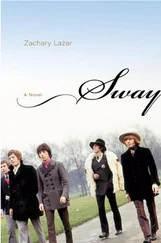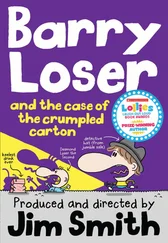SON
Buddy, the son, shuffled on his friend Vince’s arm, his father, Meyer Lansky, trailing behind them. They made their slow way along the mezzanine in half darkness, the field appearing in bright slivers at each gate, people standing at the chute’s mouth, waiting for their seats. They approached the usher, his crimped face glaring unshaven beneath a kind of gray sergeant’s cap with a white bill. It occurred to Buddy that he should just tell Vince he had to go to the bathroom now, get it over with, but his father was pushing forward with the tickets — he’d had to come up with an extra one today for Vince, arguing at the Will Call desk — and he turned to Buddy and put his hand on Buddy’s shoulder, his eyes full of crisis, raising his chin and saying, “This is us, we’re here.”
The green diamond glowed beneath him and induced a kind of vertigo as Buddy bent forward with his arms out at the side, seeking balance. The whole row had not only to stand up but to leave their seats and wait on the steps as he went awkwardly by. When he and his father and Vince finally got situated, it turned out that the Browns already had a leadoff man on first. No outs, the next batter at 1 and 0—they had missed maybe five or six pitches, but they’d missed the first man on base. His father took a seat and looked at the field. It would not be easy for him to forget that they’d missed it. He made a note in his program. He liked to recalculate the batting averages after each hitter, interested in the game’s statistics, while Buddy lost himself in the slow story of it, watching the men move in the distance from his perch in the stands. The Browns used to have a player named Pete Gray who played one-handed — he had to catch and throw with the same hand, because his right arm had been amputated as a boy after a farming accident — but now they were just a lackluster team in seventh place— What were they doing with the leadoff man already on? his father would be thinking — they’d been a lackluster team all Buddy’s life, even Pete Gray had just been a novelty to attract fans during the war. Vince was thudding his hands together and saying Let’s go, as if it were the sanest, most natural thing in the world, but of course Buddy knew that with his father there any use of the voice at all was a mistake. Vince, the student teacher with the little Chevrolet who must be getting some kind of course credit for being so nice to Buddy, who lived with his mother amid a pile of laundry and who spent three days a week at the clinic having his legs pressed in machines.
He watched his father watch the batter foul a pitch off to the first-base side, the count now full. If he had to get up and go to the bathroom, he would bother everyone in the row all over again — they would all have to stand up and let him pass. How mental the body was. He felt it burning down his groin and the more he resolved not to think about it the more he knew he wouldn’t last. The crowd was mostly men in hats and shirtsleeves, their ties loosened, except for an older woman in the row ahead who had a pocket mirror and tweezers and who was plucking hairs out of a mole on her face as if there were no one else there.
He told Vince he had to go to the bathroom.
His father remained still, looking at the field. At first it was as if he hadn’t heard, and Buddy felt grateful, but then his father gripped the armrest of his seat and started standing up, his eyes still on the game. Vince watched him, about to speak, but then didn’t. Why had Buddy assumed that Vince would take him and not his father?
REHAB
My son Eliav walks to the bus, on his way to work now like everybody else — a year later, 2002. He lives in a group home and my ex-wife says he’s doing better, though he never goes anywhere without his Walkman and its tinny patter of cymbal sounds. In the cafeteria, the light is gray and the air smells of refrigerated blood. There are stockpots as large as witches’ cauldrons and mixing bowls with long wooden oars. Cooks in hats squeeze dough and frosting out of guns. Behind a pane of glass, my son can see the butchers in their red-smeared aprons working with saws, the sides of beef encased in thin white membranes and whorls of white fat.
He tells my ex-wife that he has come to live more deeply inside his own skin now, to see his mind as an obstacle or a trap, something he’s learning to step around or avoid. In addition to rehab, he is mandated to work in the kitchen thirty hours a week. He says he doesn’t mind the apron or the paper hat. He stands at the great stainless-steel sink, more like a series of connected counters or shallow troughs, and sprays water at dirty silverware. He separates forks, knives, and spoons and forces them into plastic canisters. He arranges the canisters on plastic crates, then he clears the muck from the draining alleys, and he walks the crates to the mouth of the dish line. Later, when the silverware is finished, he goes over to stack plates with the older men.
What he wants, he tells my ex-wife, is to apprentice himself to the dish line, the anonymity of work. He wants to develop calluses on his hands and smoke cigarettes with the Yemenite men on the loading dock who treat him with a fairness that he doesn’t feel he deserves. The plates come out of the dish line so hot that only these older men can handle them, whisking them out four at a time — fast, fast — then handing them off to be stacked in the spring-loaded caddy. They hand them to my son. The plates are still so hot that he has to toss them aside almost immediately, the china taut as stone, lacquer-bright, hitting the caddy with a ring. He has to snap them four at a time from the old men’s hands, and sometimes a plate slips and explodes, shattering in a thousand shards of unleashed energy and heat.
I imagine at night he rides in a friend’s car with the windows open and the wind blasting tight and cold on his face. They move fast beneath the arced lights, my son’s head nothing but wind and sound and the lights flicking by like small dark moons through the lenses of his sunglasses. He closes his eyes in the backseat, riding in the dark car, not thinking about anything but the feel of the motion, the sound of the air, the invulnerable feeling of distance.
HOMELAND
A place where children can watch dolphins or go to dance parties. A hotel that offers a seder for those alone on Passover. D9R armored bulldozers, painted beige like the dust, push the refugee camps into rubble. With their large blades, with the cages around their cockpits, they look mindless, like mammoth insects. The Palestinian boys throw stones. Some of them wear T-shirts, some have scarves over their faces like bandits or religious zealots. The bulldozers are impervious to the stones, impervious to bombs, machine guns, even rocket-propelled grenades. I watched it happen. I struggled against it and still don’t know what I could have done differently. It took less than sixty years for my country to devolve to this, less than the span of my life.
THE “FAMILY”
A GENOVESE FAMILY TREE
JOE “THE BOSS” MASSERIA (1887–1931)
Sicilian-American crime boss. Killed by five bullets at the Nuova Villa Tammaro restaurant, Coney Island, Brooklyn, 1931.

CHARLIE “LUCKY” LUCIANO (1897–1962)
Founder of the current Five Families of American organized crime. Imprisoned, 1936. Deported to Italy, 1946.

FRANK COSTELLO (1891–1973)
Acting head of the Luciano crime family, 1936–1957. Retired after being shot by Vincent “The Chin” Gigante on orders of Vito Genovese, 1957.
Читать дальше













